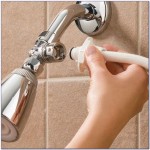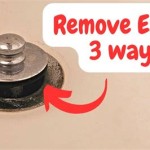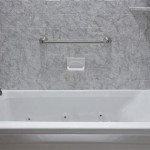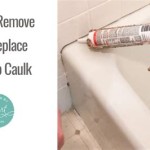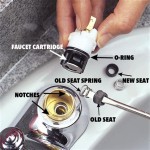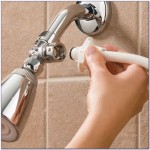Best Cleaners for Bathtub Grout: Achieving a Spotless and Sanitary Surface
Bathtub grout, the porous material filling the spaces between tiles, is notoriously susceptible to staining and discoloration. The warm, humid environment of a bathroom encourages the growth of mold and mildew, which, along with soap scum and hard water deposits, can quickly transform pristine white grout into a dingy, unsightly mess. Maintaining its cleanliness and appearance requires regular attention and the use of effective cleaning methods and products. Selecting the best cleaner for bathtub grout depends on the severity of the staining, the type of grout, and personal preferences regarding chemical exposure and ease of use.
This article provides a comprehensive overview of various cleaning agents and techniques suitable for tackling bathtub grout, offering a detailed assessment of their effectiveness, safety considerations, and application methods. The intent is to equip readers with the knowledge necessary to choose the most appropriate cleaning solution for their specific needs and achieve a consistently clean and sanitary bathtub environment.
Understanding the Challenges of Cleaning Bathtub Grout
Grout's porous nature makes it a breeding ground for contaminants. Water and spills seep into the small pores, creating a hospitable environment for mold, mildew, and bacteria to thrive. These microorganisms not only discolor the grout but also contribute to unpleasant odors and potential health risks. Soap scum, a residue formed from the combination of soap and hard water minerals, further exacerbates the problem by adhering to the grout surface and providing nourishment for microbial growth.
Furthermore, the type of grout used can impact its susceptibility to staining and the effectiveness of different cleaning methods. Cement-based grout, the most common type, is particularly vulnerable to staining due to its high porosity. Epoxy grout, a more expensive alternative, is significantly more resistant to water and stains but can still accumulate surface dirt and grime over time. Understanding the specific challenges posed by bathtub grout and the factors contributing to its discoloration is crucial for selecting the most appropriate cleaning solutions and techniques.
Exploring Different Types of Bathtub Grout Cleaners
A wide array of cleaning products is available on the market, each with its own set of ingredients, strengths, and weaknesses. These can be broadly categorized as alkaline cleaners, acidic cleaners, chlorine-based cleaners, enzyme cleaners, and natural or homemade solutions.
Alkaline cleaners, often containing ingredients like sodium hydroxide or potassium hydroxide, are effective at dissolving grease, oil, and soap scum. They are generally safe for use on most types of grout but can be corrosive to certain surfaces, such as aluminum and painted finishes. Careful application and thorough rinsing are essential to prevent damage.
Acidic cleaners, containing ingredients like hydrochloric acid or phosphoric acid, are particularly effective at removing hard water stains and mineral deposits. However, they are typically more aggressive than alkaline cleaners and should be used with caution, especially on colored grout, as they can potentially lighten or discolor the surface. Adequate ventilation and personal protective equipment, such as gloves and eye protection, are essential when handling acidic cleaners.
Chlorine-based cleaners, like bleach, are powerful disinfectants that can effectively kill mold and mildew and remove stains. They are often used to brighten white grout and restore its original appearance. However, chlorine bleach can be harsh and irritating to the skin and respiratory system and should be used in a well-ventilated area. Furthermore, it can react with other cleaning agents, such as ammonia, to produce hazardous fumes. It is crucial to never mix bleach with other cleaning products.
Enzyme cleaners utilize enzymes to break down organic matter, such as mold, mildew, and soap scum. They are generally considered to be a gentler alternative to harsh chemicals and are often preferred for their biodegradability and reduced environmental impact. However, enzyme cleaners may require longer contact times to be effective and may not be as effective on stubborn stains.
Natural or homemade solutions, such as baking soda paste, vinegar, and hydrogen peroxide, offer a more environmentally friendly and cost-effective approach to cleaning bathtub grout. Baking soda, a mild abrasive, can help scrub away dirt and grime. Vinegar, an acidic solution, can dissolve hard water stains and soap scum. Hydrogen peroxide, a mild bleaching agent, can help lighten stains and kill mold and mildew. While these solutions may not be as powerful as commercial cleaners, they can be effective for routine cleaning and maintenance.
Application Techniques and Safety Considerations for Grout Cleaning
The effectiveness of any grout cleaner depends not only on the product itself but also on the application technique. Proper preparation, careful application, and thorough rinsing are all critical for achieving optimal results and preventing damage to the surrounding surfaces.
Prior to applying any cleaner, it is important to remove loose dirt and debris from the grout lines using a brush or vacuum cleaner. This will allow the cleaner to penetrate more effectively and target the stains directly. Next, wet the grout lines with water to prevent the cleaner from being absorbed too quickly. This is particularly important for porous grout, which can readily absorb cleaning solutions and potentially become damaged.
Apply the cleaner directly to the grout lines, using a brush, sponge, or spray bottle. Allow the cleaner to dwell on the grout for the recommended amount of time, as specified by the manufacturer. This will allow the active ingredients to break down the stains and disinfect the surface. For stubborn stains, it may be necessary to agitate the cleaner with a brush or scrub pad to help loosen the dirt and grime.
After the dwell time, thoroughly rinse the grout lines with clean water to remove all traces of the cleaner. This is essential to prevent residue buildup, which can attract dirt and grime and contribute to future staining. Use a clean sponge or cloth to wipe away any excess water and ensure that the grout lines are completely dry. If any discoloration persists, repeat the cleaning process or try a different type of cleaner.
Safety is paramount when working with cleaning products. Always wear gloves and eye protection to prevent skin and eye irritation. Ensure adequate ventilation to avoid inhaling fumes. Never mix different cleaning products together, as this can create hazardous reactions. Keep cleaning products out of reach of children and pets. Read and follow the manufacturer's instructions carefully, paying close attention to warnings and precautions.
Beyond the immediate cleaning process, preventative measures can significantly reduce the frequency and intensity of grout cleaning. Regular cleaning after each shower can prevent the buildup of soap scum and mildew. Improving ventilation by opening windows or using an exhaust fan can reduce humidity and inhibit mold growth. Sealing the grout with a grout sealer can help protect it from water and stains. Implementing these preventative measures can help maintain a clean and sanitary bathtub grout for an extended period of time.
The selection of the best cleaner for bathtub grout requires careful consideration of several factors, including the type of grout, the severity of the staining, personal preferences regarding chemical exposure, and the desired outcome. By understanding the various cleaning agents available, their respective strengths and weaknesses, and the proper application techniques, individuals can effectively maintain the cleanliness and appearance of their bathtub grout and create a more hygienic and aesthetically pleasing bathroom environment. Regular maintenance and preventative measures are crucial for long-term grout health and minimizing the need for harsh chemical cleaners.

How To Clean Bathroom Tile And Grout Reviews By Wirecutter

10 Best Shower Cleaners Of 2025 Reviewed

Zep Grout Cleaner And Brightener 32 Oz Zu104632 At Com

11 Best Shower Cleaners Tested Reviewed Nbc Select

Clearance Mold Stain Remover Gel Cleaner Heavy Duty For Front Loader Washing Machine Seal Bathroom Grout Shower Caulk Best Home

Bestnifly 42 Extendable Bathroom Kitchen Scrub Brushes With Bathtub Brush Refill For Cleaning Shower Grout Floor

11 Best Shower Cleaners Tested Reviewed Nbc Select

How To Clean A Bathtub And Sink Reviews By Wirecutter

The Best Grout Cleaners According To Our Testing Bob Vila

11 Best Shower Cleaners Tested Reviewed Nbc Select
Related Posts

